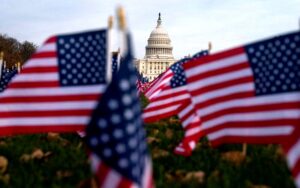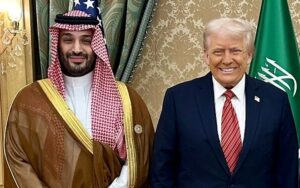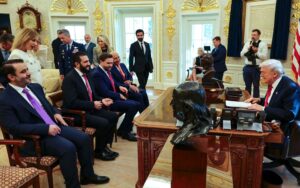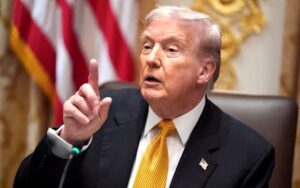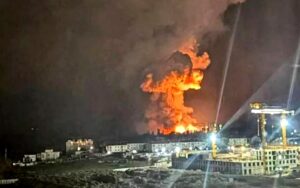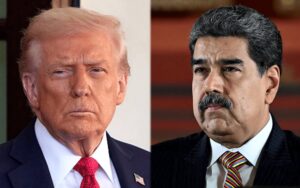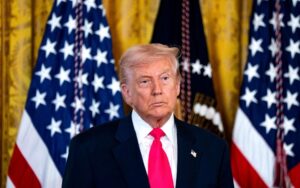The Washington Post: Trump is resorting to strategic ambiguity and hiding his next steps on Venezuela
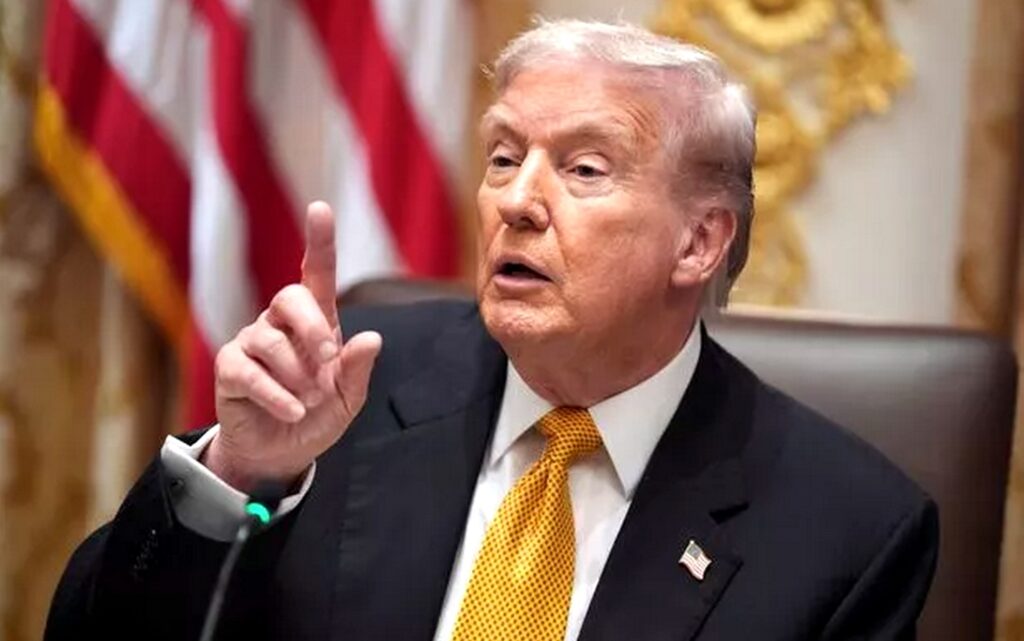
The Washington Post, citing sources familiar with the issue, said that President Donald Trump is considering striking Venezuela as US forces prepare to receive orders for a possible attack.
The Washington Post, citing the sources, reported that high-level discussions about the possibility of a strike on Venezuela and how to do so have been underway for days.
A US administration official told the Washington Post that a range of options were presented to President Trump.
He told The Washington Post that Trump is very good at maintaining strategic ambiguity and one of the things he is good at isn’t dictating or informing opponents of his next move.
The US administrative official told the Washington Post: “The United States is following what is happening in Venezuela and what is happening between Maduro’s followers and the highest levels of his regime… Maduro is very scared and he should be afraid… The president has options available that are very damaging to Maduro and his regime… We consider this regime illegitimate and it doesn’t serve the interests of the Western Hemisphere”.
Any strike on Venezuelan soil would undermine the president’s repeated promises to avoid new conflicts and break with promises made to Congress in recent weeks that there would be no active preparations for such an attack.
The strike could complicate US dealings with other Latin American countries and deepen doubts about whether Trump’s goal is to forcibly overthrow Venezuelan President Nicolás Maduro, whom Trump has accused of sending drugs and violent criminals to the United States, or to control Venezuela’s resources.
War Secretary Pete Hegseth and Chairman of the Joint Chiefs of Staff Gen. Dan Kaine returned to the White House on Friday for the second consecutive day of deliberations focused on possible military action in Venezuela, as US forces in the region prepare for orders for a possible attack.
It remains unclear whether President Donald Trump has decided to continue the escalation, although high-level discussions about the possibility of a strike on Venezuela and how to do so have been underway for days, according to the people, who spoke on condition of anonymity due to the sensitivity of the matter.
They added that Vice President J.D. Vance, Secretary of State Marco Rubio and Deputy Chief of Staff Stephen Miller also joined the White House meeting.
The United States has a formidable military advantage over Venezuela, but a significant expansion of its activities also threatens to put US forces at grave risk.
Fighter pilots aboard the aircraft carrier USS. Gerald R. Ford, which is sent to the region, are studying Venezuelan air defenses, but they don’t yet know whether they will receive orders to attack, according to a source familiar with the issue.
With the arrival of the aircraft carrier Gerald R. Ford, there are about 15,000 US troops in the region, including personnel deployed to about a dozen warships, and reinforcements sent in recent weeks to US facilities in Puerto Rico.
This presence represents a spectacular community in an area that has historically seen only one or two US Navy ships at once, along with routine US Coast Guard drug seizures, which usually lead to the arrest of alleged smugglers and the seizure of any prohibited substances.
As of Friday, there were seven US warships in the Caribbean, including the guided-missile cruisers USS Gettysburg and the USS. Lake Erie, the destroyers USS. Graffley and USS. Stockdale, and the amphibious ships USS. Iwo Jima, USS. Fort Lauderdale and USS. San Antonio.
The Ford was close in the Atlantic with the destroyers USS. Mahan, USS. Bainbridge and USS. Winston S. Churchill.
The US plans have also raised the possibility of engaging the military’s elite Delta Force.
In addition, the highly trained Special Operations Unit is preparing for a range of catch-and-kill missions, and has been used repeatedly during two decades of US wars in the Middle East.
In recent weeks, Trump and his top advisers have sent conflicting signals about the administration’s intentions, repeatedly expressing a desire to expand the on the ground campaign that killed an estimated 80 people on small speedboats allegedly smuggling drugs across the Caribbean and the eastern Pacific.
However, while Congress was debating legislation to prevent it from starting a war in Venezuela, Hegseth and Rubio privately told some lawmakers that the administration didn’t currently plan to do so – a confirmation that helped persuade enough Republicans to reject the measure.
During a briefing in late October at the Capitol, members of the House Armed Services Committee asked military officials whether the Pentagon was planning any operations inside Venezuela, according to a Democratic lawmaker.
“They also received assurances at the time that the answer was ‘no’.
Speaking for the Pentagon on condition of anonymity because the briefing he received was confidential, the person said: “I started to have a great lack of confidence in the department… And I started to think that their motives weren’t sincere, that they weren’t transparent and honest with Congress”.

